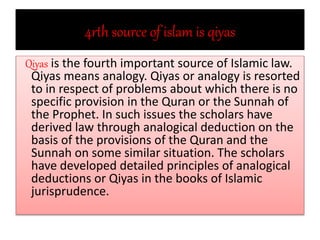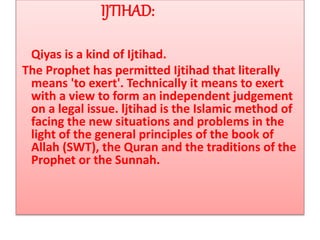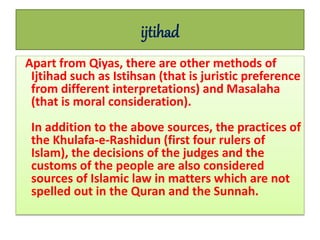This document discusses the four sources of Islamic law (Shariah):
1. The Quran, which was revealed to the Prophet Muhammad over 23 years and provides spiritual, moral and legal guidance.
2. The Sunnah (traditions and practices of the Prophet), which are recorded in hadith collections and clarify or supplement the Quran.
3. Ijma, which refers to consensus among Islamic scholars.
4. Qiyas (analogical reasoning), which is used when no guidance is available in the Quran or Sunnah by applying logic and reasoning.
The document then provides details on the definition and types of divine revelation (Wahi), the compilation of the Q

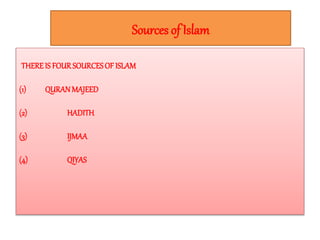
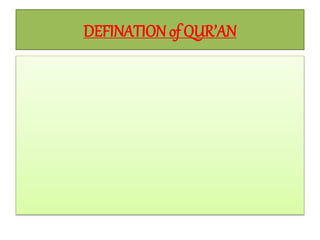

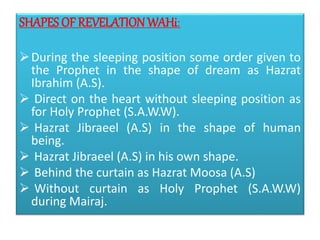
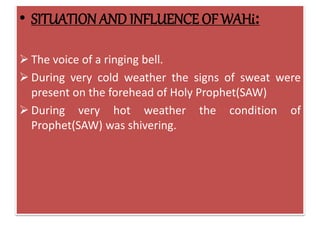

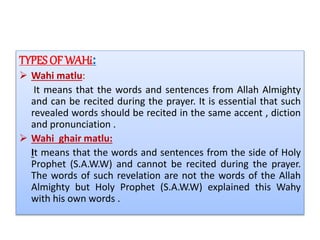
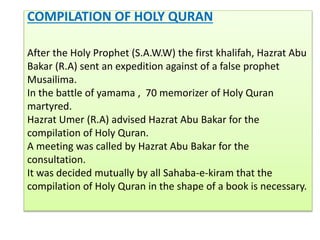
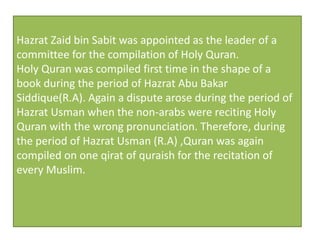
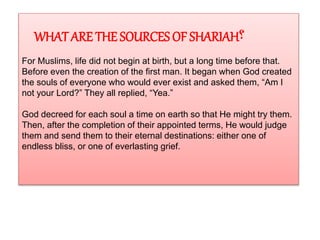
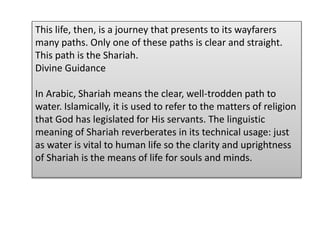
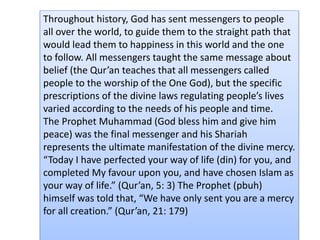
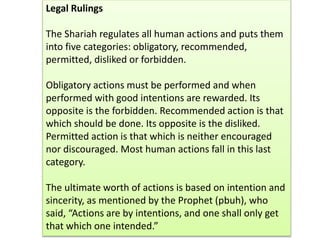
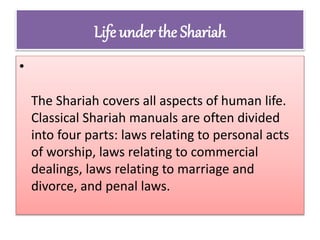
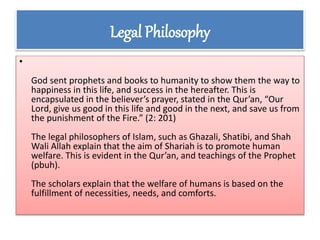
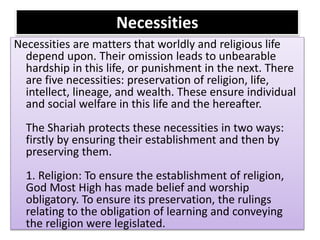
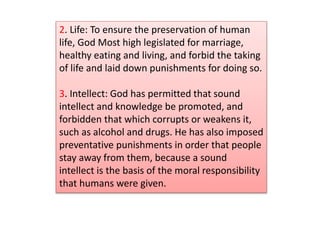
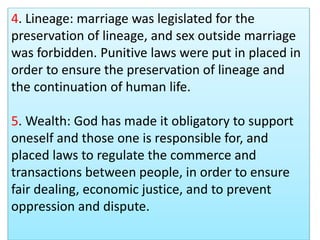

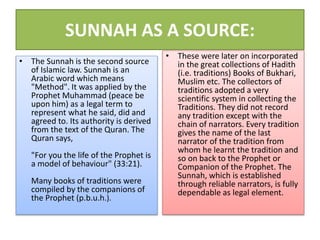
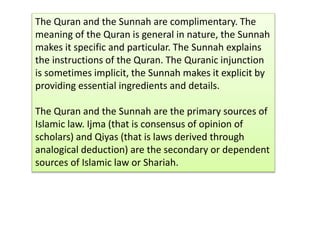
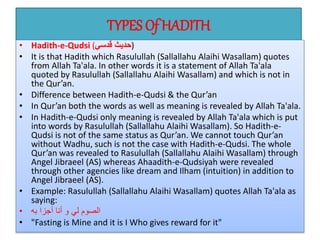
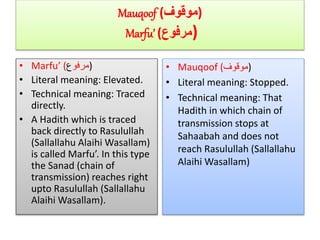
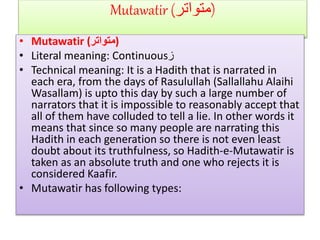
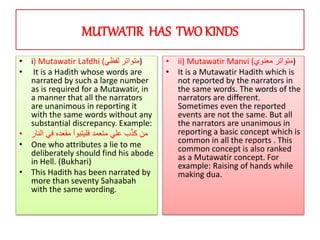
![Hadith Khabre-Wahid (واحد خبر
• Khabre-Wahid (واحد )خبر
• Literal meaning: Khabre means statement and Wahid
means one .
• Technical meaning: That Hadith which does not reach to
the status of Mutawatir.
• Classification of Khabre Wahib
• II) Khabre Wahid has also been divided into two groups as
per acceptability.
• a) Maqbool (:)مقبول Accepted.
• b) Mardood (:)مردود Rejected or Dhaeef (weak) (Sometimes
these two are thought to be synonymous)].
• a) Maqbool is further divided into five kinds.](https://image.slidesharecdn.com/sourcesofshareea-170213151227/85/Sources-of-shareea-27-320.jpg)
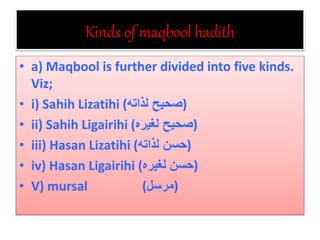
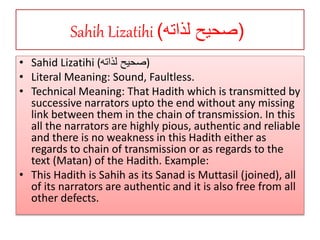
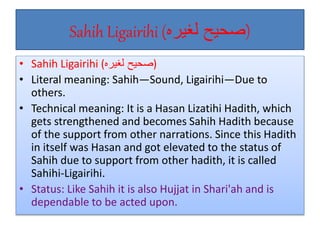
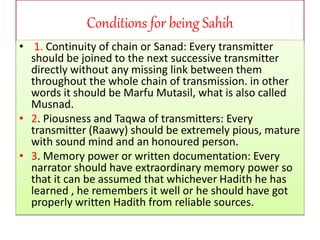
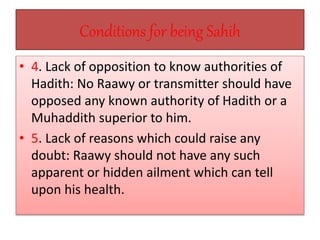
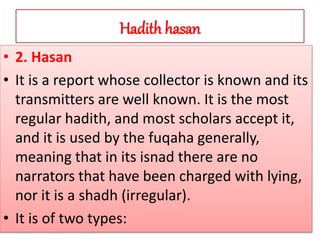
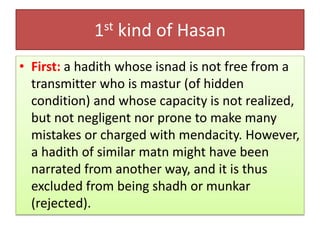
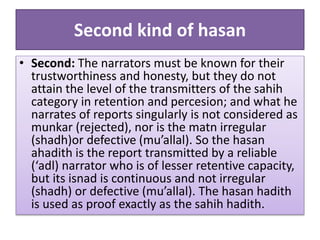
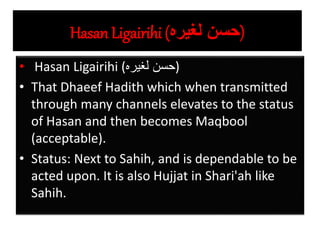
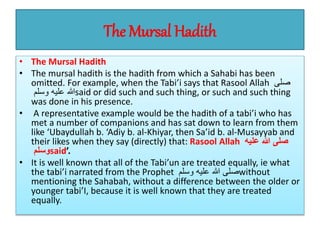
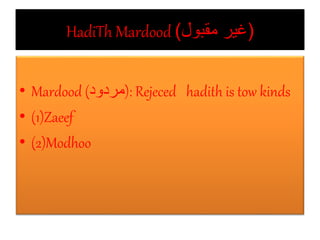
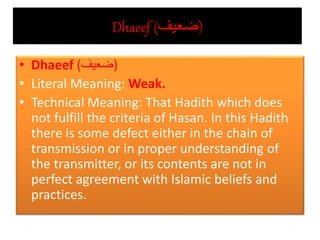
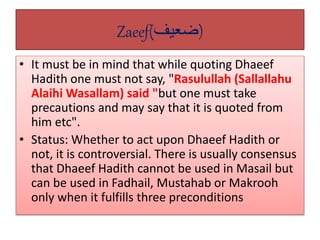
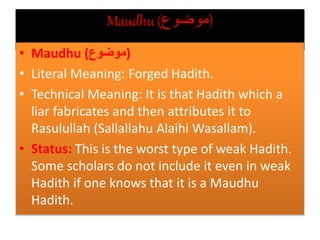
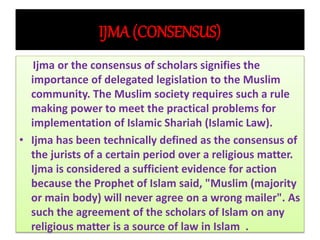
![ijma‘ is third source of
islam
• The ijma' , or consensus amongst Muslim
jurists on a particular legal issue, constitutes
the third source of Islamic law. Muslim jurists
provide many verses of the Qur'an that
legitimize ijma' as a source of legislation.[14][15]
• Muhammad وسلم عليہ هللا صلیhimself said:
• "My followers will never agree upon an error
or what is wrong",](https://image.slidesharecdn.com/sourcesofshareea-170213151227/85/Sources-of-shareea-43-320.jpg)
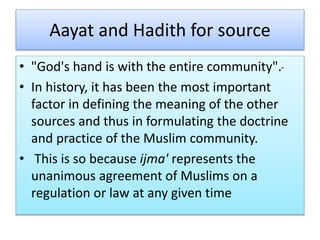
![There are various views on ijma' among Muslims.
Sunni jurists consider ijma' as a source, in matters of
legislation, as important as the Qur'an and Sunnah.
Shiite jurists, however, consider ijma' as source of
secondary importance, and a source that is, unlike
the Qur'an and Sunnah, not free from error .
Ijma' was always used to refer to agreement reached
in the past, either remote or near.
] Amongst the Sunni jurists there is diversity on who
is eligible to participate in ijma' , as shown in the
following table:](https://image.slidesharecdn.com/sourcesofshareea-170213151227/85/Sources-of-shareea-45-320.jpg)
